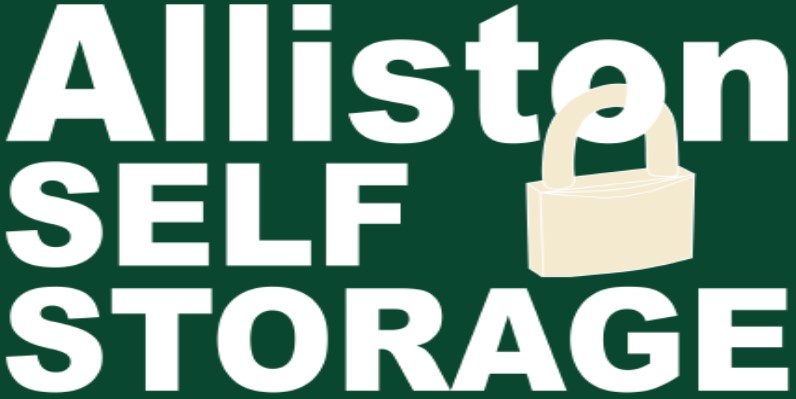How Much Does Self-Storage Cost?
—
July 24th, 2024
Understanding storage costs is crucial whether you’re a business owner or an individual. With a multitude of storage options available, it can take time to figure out what fits your needs and budget. Knowing the ins and outs of storage pricing can help you make informed decisions and avoid unnecessary expenses.
Average Self-Storage Unit Costs
Here’s a quick glimpse at the average monthly rental prices for different storage unit sizes in Alliston:
Small (5×5 feet): Ideal for seasonal items, decorations, or a small apartment’s worth of belongings.
– Average Cost: $80-$100
Medium (10×10 feet): A popular choice for storing furniture from a one-bedroom apartment or business supplies for a small office. – Average Cost: $189-$220
Large (10×20 feet): Can accommodate the contents of a larger home or a significant amount of business inventory. – Average Cost: $279-$350
Remember, these are just averages. The actual price you pay can vary depending on several factors and the types of units.
Types Of Storage Units
There are different types of storage units, and each comes with its own set of costs. Here are some common types of storage units:
Self-storage: These are the most popular types of storage units. They’re typically used by individuals or businesses who need extra space for their belongings. Self-storage units are usually rented on a monthly basis, and prices vary depending on the size and location.
Drive-up access storage: These units are similar to self-storage but allow you to drive your vehicle right up to the unit for easy loading and unloading. They’re ideal for storing large items like furniture or vehicles.
Heated And Non-Heated Storage Units: Heated storage units have temperature control, making them suitable for items sensitive to extreme temperatures. Non-heated storage units are cheaper and can be used for storing items that don’t require temperature control.
Factors Affecting Storage Costs
Several factors can influence the cost of storage, regardless of the type:
Size
The size of the storage unit you need is a primary cost driver. Larger physical storage units provide more space to store items but come with a higher rental fee. They will naturally cost more due to the increased capacity. Therefore, assessing your storage requirements carefully can help in managing costs effectively.
Location
Storage prices can vary significantly by location. Urban areas with high demand typically have higher rates than rural locations. In cities, the scarcity of space and the convenience of proximity drive up costs. At the same time, rural areas often benefit from more available land and lower demand, resulting in more affordable storage options. Factors such as security features, facility amenities, and accessibility can also influence the overall pricing.
Duration
Long-term storage often comes with discounts, but it’s essential to evaluate whether the savings are worth the commitment. Consider factors such as the duration you need the storage, the security measures in place, and the accessibility of your items. By weighing these aspects, you can make a well-informed decision that balances cost and convenience.
Additional Services
Services like heated or not-heated units, security features, and insurance can significantly add to the overall storage cost. While these services may be necessary for sensitive or valuable items, such as antiques, electronics, or important documents, they can substantially inflate your storage expenses. For example, advanced security features provide peace of mind against theft. Additionally, insurance coverage can protect against unforeseen events. Carefully consider your needs to balance cost and necessity.
Choosing The Right Storage Unit
When choosing a storage unit, it’s crucial to consider your specific needs and budget. Here are some tips to help you make the right decision:
Assess Your Needs
Evaluate what you need to store and how much space you require. This will help determine the appropriate size and type of storage unit.
Consider Location
As mentioned earlier, location plays a significant role in determining costs. If accessibility is not a top priority for you, opting for a storage facility in a more affordable area can help reduce expenses.
Compare Prices
Don’t settle for the first storage facility you come across. Compare prices from different facilities to find the best deal.
The Storage Duration
If you need short-term storage, look for facilities that offer flexible monthly rental options. For long-term storage, consider facilities that offer discounts or promotions for extended periods.
Additional Factors
As mentioned earlier, additional services come at a cost. Consider if you truly need them and how they impact the overall cost. Evaluate the necessity of each service carefully and weigh the benefits they provide against their expenses. Understanding how these additional services fit into your budget can help you make more informed decisions.
Conclusion
Understanding the various factors that affect storage costs and the different types of storage available can help you make informed decisions. Whether you’re looking to store some furniture or a whole house’s worth of stuff, there’s a solution out there that fits your needs and budget. Take the time to assess your storage requirements and explore cost-saving opportunities to make the most of your investment.
Ready to optimize your storage solution? Contact Alliston Self Storage for more information and affordable storage options.
extension of your home
